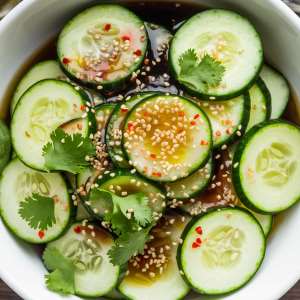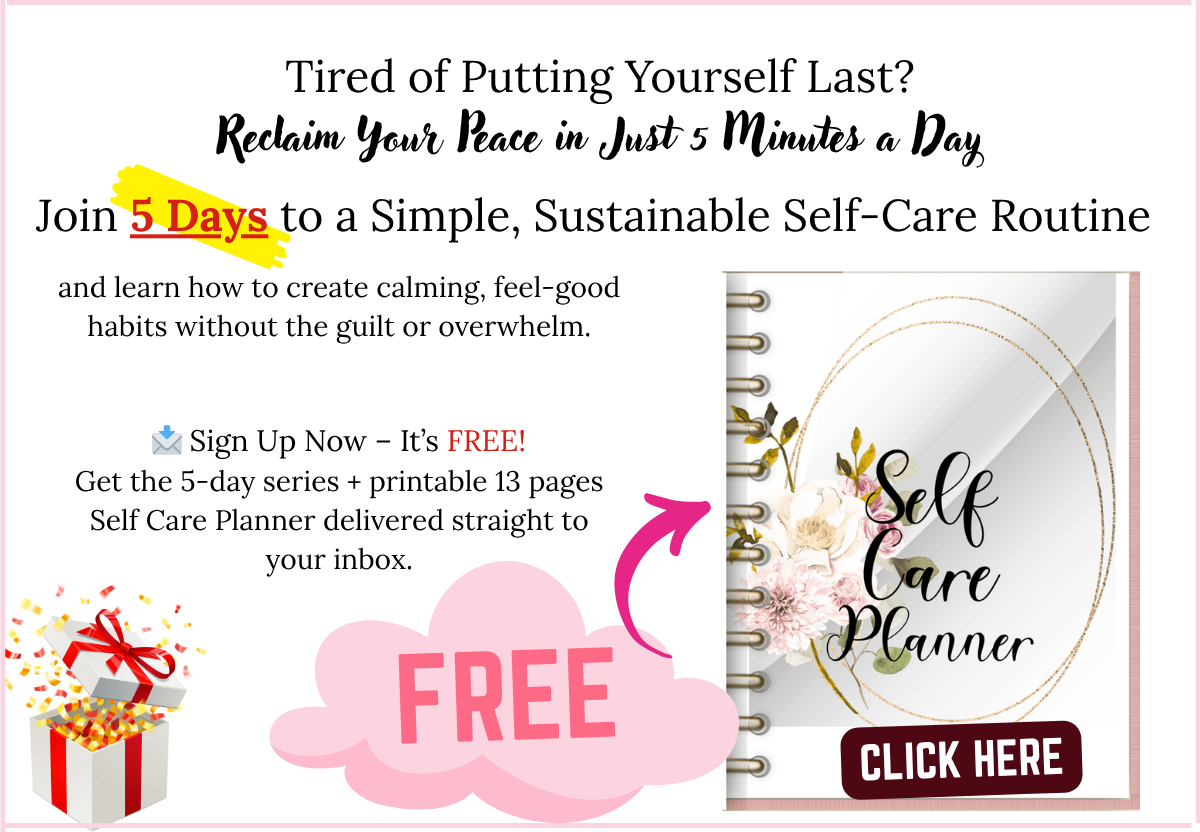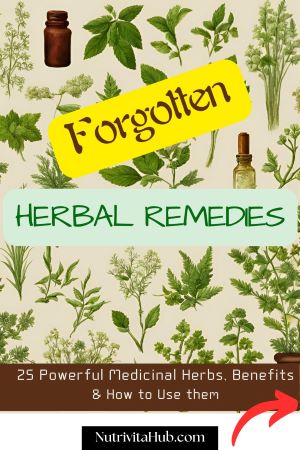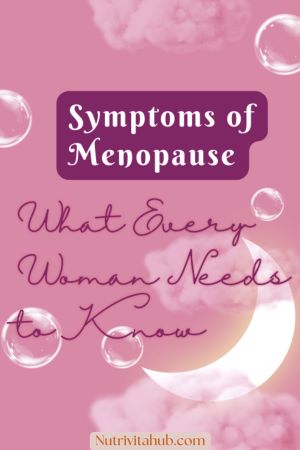Home Remedies for Rosacea: Insights from Dermatology Experts
Rosacea is a chronic skin condition that affects many Americans. It causes redness, flushing, and acne-like breakouts. While it can’t be cured, you can manage it at home. This article shares expert tips on treating rosacea naturally and making lifestyle changes.
Learn how to calm inflammation, reduce redness, and stop future breakouts. You’ll find out about natural remedies and gentle skincare routines. These tips will help you take care of your skin.
Key Takeaways
- Rosacea is a chronic skin condition affecting millions of Americans, causing redness and inflammation.
- While rosacea cannot be cured, there are effective ways to manage symptoms at home using natural remedies and lifestyle changes.
- Dermatologists recommend gentle skincare routines, dietary modifications, and stress management techniques to control rosacea flare-ups.
- Soothing natural ingredients like aloe vera and green tea can help calm inflammation and redness associated with rosacea.
- Protecting the skin from UV exposure and incorporating lifestyle adjustments are crucial for preventing future rosacea episodes.
Understanding Rosacea: Symptoms and Causes
Rosacea is a chronic skin condition. It causes redness, flushing, and visible blood vessels on the face. Knowing about rosacea symptoms and rosacea causes helps manage it.
Recognizing the Different Types of Rosacea
Rosacea comes in four main types, says dermatologists:
- Erythematotelangiectatic rosacea – This type has constant redness and flushing, with visible blood vessels.
- Papulopustular rosacea – It has red, inflamed bumps and pimples like acne.
- Phymatous rosacea – This type makes the skin thick, often on the nose (rhinophyma).
- Ocular rosacea – It affects the eyes, causing irritation, dryness, and redness.
Common Triggers and Aggravating Factors
Many things can trigger and make rosacea worse, like:
- Sun exposure – UV rays can make rosacea worse and cause flare-ups.
- Stress – Stress can make blood flow more and cause flushing.
- Spicy foods – Some foods and drinks, like spicy dishes, hot coffee, and alcohol, can trigger rosacea.
- Changes in temperature – Sudden changes in temperature, hot or cold, can make rosacea worse.
Knowing and avoiding these rosacea triggers and aggravating factors helps manage rosacea. It can reduce flare-ups.

| Type of Rosacea | Symptoms |
|---|---|
| Erythematotelangiectatic | Persistent redness, flushing, visible broken blood vessels |
| Papulopustular | Red, inflamed bumps and pimples resembling acne |
| Phymatous | Thickening of the skin, often on the nose (rhinophyma) |
| Ocular | Eye-related symptoms like irritation, dryness, and redness |
“Understanding the specific symptoms and triggers of rosacea is the first step in managing this chronic skin condition effectively.”
Natural Remedies for Rosacea Relief
Looking for a natural way to handle rosacea? There are home remedies that work well. They use nature to ease the redness and discomfort of this skin issue.
Soothing Aloe Vera for Inflammation and Redness
Aloe vera is great for rosacea because it fights inflammation. Its cool touch helps reduce redness and calms the skin. Putting fresh aloe vera gel on the skin is a simple way to ease rosacea symptoms.
Green Tea: A Potential Antioxidant Powerhouse
Green tea is full of antioxidants. It can calm the skin and protect it from the sun, a rosacea trigger. Drinking or using it as a toner can soothe the skin and lessen flare-ups. Its polyphenols help fight inflammation, making it a good natural choice.
Other options like oatmeal, chamomile, and essential oils like lavender and tea tree can also help. Using aloe vera and green tea can help manage rosacea and ease its symptoms.
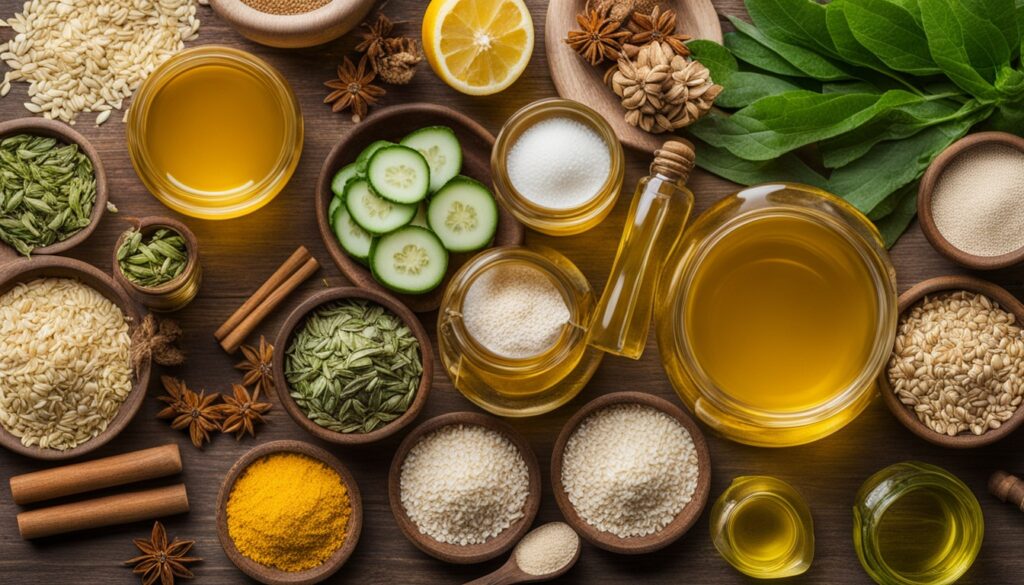
Gentle Skincare Routine for Rosacea-Prone Skin
People with rosacea need a gentle skincare routine. Harsh products can make rosacea worse. Experts suggest rosacea-friendly skincare to soothe and protect sensitive skin.
Choosing the Right Cleansers and Moisturizers
For gentle rosacea cleansers, choose ones without harsh stuff. Go for creamy cleansers that clean without taking away skin oils. Rosacea moisturizers should also be fragrance-free. They should have ingredients like ceramides and glycerin to help the skin.
Finding the right sensitive skin skincare routine for rosacea takes time. It’s important to pick non-irritating rosacea products that calm down redness. A dermatologist can help find the best products for you.
| Rosacea-Friendly Skincare Essentials | Benefits |
|---|---|
| Gentle, Fragrance-Free Cleanser | Removes impurities without stripping the skin |
| Hydrating, Calming Moisturizer | Strengthens the skin’s protective barrier |
| Antioxidant-Rich Serum | Helps reduce inflammation and redness |
| Broad-Spectrum Sunscreen | Shields skin from damaging UV rays |
Choosing the right rosacea-friendly skincare products helps manage rosacea. A gentle routine can keep your skin healthy and glowing.
Dietary Considerations for Managing Rosacea
Managing rosacea means looking at many things, including what we eat. Eating the right foods can help control the condition. It’s important to know which foods make rosacea worse and which ones help.
Foods to Avoid and Embrace
Some foods make rosacea worse, causing more redness and swelling. You should watch out for these foods:
- Spicy dishes
- Hot beverages
- Alcoholic drinks
- Caffeine-rich items
- Dairy products
- Processed, fried, or high-fat foods
But, eating foods that fight inflammation can help. These foods are good for rosacea:
- Garlic and onions have stuff that fights inflammation
- Omega-3 fatty fish like salmon, tuna, and mackerel
- Leafy greens, berries, and other foods full of antioxidants
- Yogurt, kefir, and fermented veggies for probiotics
Watching what you eat and knowing what makes rosacea worse can help. This way, you can manage your rosacea better with an anti-inflammatory diet.
“Dietary modifications can be a powerful tool in the management of rosacea. By choosing the right foods, you can help soothe inflammation and minimize symptoms.”
| Foods to Avoid | Rosacea-Friendly Foods |
|---|---|
| Spicy dishes, hot beverages, alcohol | Garlic, onions, omega-3 fatty fish |
| Caffeine, dairy, processed foods | Leafy greens, berries, probiotic-rich foods |
How to Treat Rosacea at Home: Dermatologist-Approved Tips
Rosacea can be tough and never goes away easily. But, you can manage it at home with the right steps. Dermatologists give tips to help you feel better and stop flare-ups.
They say to use natural things in your skincare. Soothing aloe vera can calm down redness. Green tea has antioxidants that help too. Also, use gentle, scent-free cleansers and moisturizers to keep your skin healthy.
It’s also important to know what makes rosacea worse for you. Things like stress, being in the sun too much, eating spicy foods, and some makeup products can trigger it. Stay away from these things to help control your rosacea.
Keeping your skin safe from the sun is key. Dermatologists tell you to use sunscreen with an SPF of 30 or higher. Also, try to stay in the shade when you can.
Doing things to reduce stress can also help. Try meditation, yoga, or deep breathing. These can lower the chance of rosacea getting worse and make your skin better overall.
| Dermatologist-Approved Rosacea Home Treatment Tips |
|---|
|
By using these tips from dermatologists, you can help manage your rosacea. You can also make your skin look and feel better.
Stress Management Techniques for Rosacea Flare-ups
Managing stress is key for those with rosacea. It helps control flare-ups and lessen symptoms. By adding stress-relief activities to their day, people with rosacea can help their skin.
Meditation is a great way to start. It calms the mind, lowers inflammation, and boosts well-being. Just 10-15 minutes a day can help with stress for rosacea.
Deep breathing exercises are also good. They slow down your breathing and calm your body’s stress response. Doing this a few times a day can help reduce rosacea flare-ups.
Yoga is another great choice for managing stress. It combines poses, breathing, and focus to calm the mind and body. Adding yoga to your routine can help control rosacea flare-ups.
“Stress management is a critical component of rosacea treatment. By taking proactive steps to reduce stress, individuals with rosacea can better manage their symptoms and prevent future flare-ups.” – Dr. Emily Newsom, Dermatologist
Using a holistic approach to managing stress for rosacea helps improve skin health and well-being. Techniques like meditation, deep breathing, and yoga can reduce rosacea flare-ups and give lasting stress relief for rosacea.
Sun Protection: Shielding Your Skin from UV Rays
Sun protection is key for people with rosacea. Sunlight can make rosacea worse. Dermatologists say to use sunscreen with SPF 30 or higher every day, even when it’s cloudy.
Wearing protective clothes like big hats helps too. These items can stop rosacea from getting worse and keep your skin healthy.
Sun-Safe Tips for Rosacea
- Use broad-spectrum sunscreen with SPF 30 or higher every day, even on cloudy days.
- Stay in the shade during the peak UV hours, from 10 a.m. to 4 p.m.
- Wear hats, sunglasses, and cover-up clothes to protect your skin.
- Avoid the sun during the hottest and sunniest parts of the day.
- Put on sunscreen every two hours, or more if you’re swimming or sweating.
| Sunscreen Considerations for Rosacea | Mineral-Based Sunscreens | Chemical Sunscreens |
|---|---|---|
| Active Ingredients | Zinc oxide, titanium dioxide | Avobenzone, oxybenzone, etc. |
| Skin Irritation | Less likely to cause irritation | More likely to cause irritation |
| Absorption | Sit on the skin’s surface | Absorb into the skin |
| Recommendations for Rosacea | Preferred option for sensitive skin | May cause more irritation |
Using these sun protection steps daily can help shield your skin from UV rays. This can stop rosacea flare-ups caused by the sun.
“Protecting your skin from the sun is crucial for managing rosacea. Using a broad-spectrum sunscreen and wearing protective clothing can make a significant difference in reducing flare-ups and promoting overall skin health.”
– Dr. Emily Newsom, Board-Certified Dermatologist
Essential Oils and Their Potential Benefits
Some essential oils might help with rosacea symptoms. Lavender oil and tea tree oil have special properties. They can ease redness, lessen irritation, and might stop tiny mites that cause rosacea.
With a doctor’s advice, these natural rosacea treatments can be part of a full plan to manage rosacea.
Lavender and Tea Tree Oil for Rosacea
Lavender oil calms and soothes rosacea-prone skin. It may lessen redness and irritation. Tea tree oil might stop Demodex mites from growing. These mites are linked to some rosacea types.
Always follow a doctor’s advice and test the oils on a small area first. Mixing the oils with a carrier oil like jojoba or coconut oil can also be safer.
Adding these natural rosacea treatments to your skincare may lessen inflammation and boost skin health. But remember, essential oils should not replace any doctor-prescribed treatments.
Lifestyle Modifications for Rosacea Prevention
Managing rosacea is more than just about skincare products or natural remedies. Making lifestyle changes helps prevent rosacea flare-ups and keeps skin healthy. By avoiding personal rosacea triggers and living a rosacea-friendly lifestyle, you can manage your condition better.
Understanding what makes your rosacea worse is key. This includes certain foods, weather, or stressful situations. Keeping a journal helps you see what causes rosacea flare-ups. Then, you can change your daily habits for rosacea.
- Avoid known rosacea triggers, such as spicy foods, hot drinks, and extreme weather.
- Make lifestyle changes for rosacea, like wearing sun protection, managing stress with meditation or yoga, and using a gentle skincare routine.
- Eat rosacea-friendly foods full of antioxidants and anti-inflammatory stuff, like green tea, leafy greens, and omega-3 fish.
These lifestyle changes for rosacea prevention help you manage your rosacea better. They reduce how often and how bad rosacea flare-ups happen. A full approach that looks at skincare and daily habits for rosacea is key for long-term skin health and happiness.
| Lifestyle Changes for Rosacea | Benefits |
|---|---|
| Identify and avoid personal triggers | Reduces the risk of rosacea flare-ups |
| Adopt a gentle skincare routine | Soothes and protects sensitive skin |
| Incorporate stress-reducing techniques | Helps manage the impact of stress on rosacea |
| Consume a rosacea-friendly diet | Provides antioxidants and anti-inflammatory support |
When to Seek Professional Dermatological Treatment
Managing rosacea at home can help, but sometimes you need a dermatologist’s help. If your rosacea is severe, doesn’t go away, or doesn’t respond to treatments, you should see a doctor.
A dermatologist knows a lot about skin problems. They can figure out what kind of rosacea you have. This helps them make a treatment plan just for you.
Severe Rosacea Symptoms
If you have any of these severe rosacea symptoms, see a rosacea specialist:
- Widespread, intense redness and flushing that doesn’t improve with home remedies
- Severe papules (small, red bumps) or pustules (pus-filled lesions)
- Thickening of the skin, especially on the nose (rhinophyma)
- Eye involvement, such as blepharitis or conjunctivitis
When to See a Dermatologist for Rosacea
Also, see a dermatologist if:
- Home treatments don’t help much
- Your rosacea gets worse or happens more often
- You’re having a new flare-up and don’t know how to handle it
- You want to try prescription drugs or advanced treatments like laser therapy
A dermatologist for rosacea can give you the help and care you need. They can help you control your rosacea and improve your life.
Conclusion
Managing rosacea is a journey that lasts a lifetime. But, with the right steps, you can control your symptoms and better your skin health. Using natural rosacea remedies, a gentle rosacea skincare routine, and changing your lifestyle can help.
It’s important to pay attention to your skin. Find out what makes your rosacea worse and work with a dermatologist. Together, you can make a plan for rosacea home treatment. With expert advice and self-care, you can handle flare-ups and keep your skin looking good.
Rosacea is a challenge, but you don’t have to face it alone. Get help from doctors and follow the dermatologist rosacea advice in this article. This way, you can take charge of your rosacea and feel confident again, step by step.
FAQ
What are the main symptoms of rosacea?
What are common triggers for rosacea flare-ups?
What are some natural remedies for rosacea relief?
What kind of skincare routine is recommended for rosacea-prone skin?
How can diet affect rosacea symptoms?
What lifestyle changes can help manage rosacea?
When should someone with rosacea seek professional dermatological treatment?
Source Links
- 7 rosacea skin care tips dermatologists recommend – https://www.aad.org/public/diseases/rosacea/triggers/tips
- Rosacea Natural Treatment · Top Dermatology · Dermatologist NYC – https://www.manhattandermatologistsnyc.com/rosacea-natural-treatment/
- Natural Treatments for Rosacea – https://health.clevelandclinic.org/rosacea-natural-treatments



